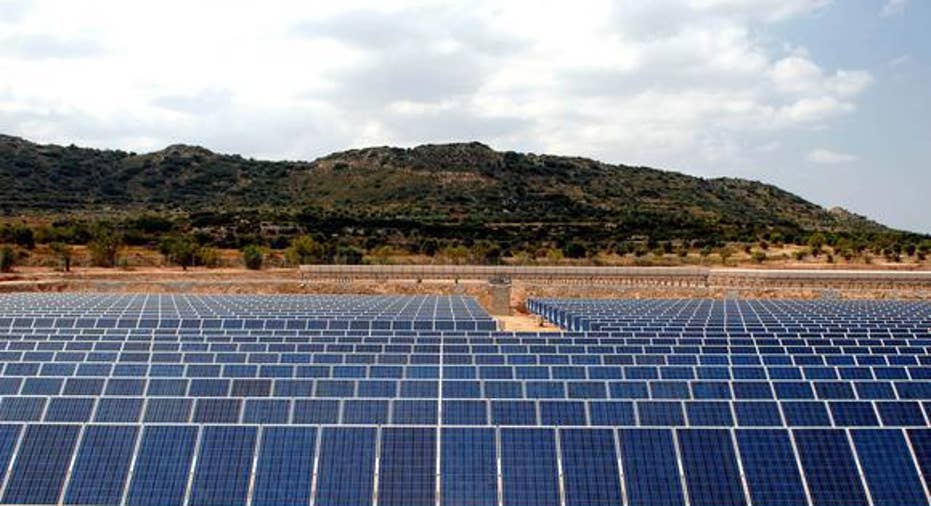Is the Yieldco Business Model Dead?

Image source:SunEdison.
Renewable-energy yieldcos have been a huge disappointment. Although many have long-term stable cash flows from high-credit customers, 8point3 Energy Partners , TerraForm Power, and TerraForm Global have all underperformed since their IPOs.
Partly because their parent, SunEdison , has experienced troubles, and partly because of the broader correlation with crude, TerraForm Powerhas fallen 74% since its IPO, while TerraForm Globalhas fallen 80%. The stronger 8point3 Energy Partnershas done the best but is still down 28% since its inception. Over the past year, several negative events have dispelled the notion that yieldcos can do no wrong.
Affordable liquidity isn't a givenBefore the renewable-energy yieldco crash, many investors thought yieldcos would only help solar companies. That thinking wasn't wrong a year ago, when solar companies for the most part didn't retain the majority of the value they created in their projects. Most of the value solar companies generated was passed on to the solar asset buyers, such as utility companies and third parties that had liquidity instead.
With the introduction of yieldcos, however, the solar companies kept the value for themselves by retaining the solar assets in their yieldcos instead of selling the projects to utility companies and third companies. Yieldco investors would receive an attractive dividend yield in the era of low interest rates, and the solar companies would get more liquidity at better overall margins, allowing them to become more profitable and grow faster. Because yieldco contracts were long-duration contracts with high credit customers, and solar and wind assets are economically independent from commodity prices, investors didn't think that much of anything could go wrong.
But the assumption that renewable-energy yieldcos would be independent of crude prices no matter what turned out to be wrong. Because crude prices had fallen so much, MLP yields started rising because of investor fear that some MLPs wouldn't have enough cash flow to service their debts. The rising MLP yields forced renewable-energy yieldco yields to increase, because many income investors make their decisions on a relative yield basis.
When some renewable-energy yieldcos' yields rose higher than their levered total return on their portfolio, it became impossible for yieldcos such as TerraForm Power to raise growth liquidity without hurting their shareholders. When that occurred, investors sold TerraForm Power and its parent, SunEdison, because of the decline in the two companies' future expected growth rate. The selling led to more selling, and the resulting panic shut off SunEdison's access to affordable liquidity, which prompted SunEdison to undergo a liquidity crisis and sent its stock into a tailspin.
Conflicts of interestsThe dramatic decline in SunEdison's stock also exposed another weakness of yieldcos. Because the solar company and the yieldco are two different companies, their interests aren't always aligned. During SunEdison's decline, for example, SunEdison's top priority was to find as much affordable liquidity as possible. In SunEdison's case, it meant that the company would try to use its captive yieldco, TerraForm Power, to overpay for a solar portfolio that SunEdison was acquiring. Because TerraForm Powerwould overpay, the move would destroy shareholder value in the yieldco. Fortunately, the value-destruction scenario for TerraForm Power has since been averted after SunEdison failed to close on the acquisition of the solar portfolio as part of its unsuccessful attempt at acquiring Vivint Solar.
Investor takeawayWhile some yieldcos such as TerraForm Power andTerraForm Global have their own problems, not all yieldcos are the same. 8point3 Energy Partners is a remarkably strong yieldco, with two parents, First Solar (NASDAQ: FSLR) and SunPower (NASDAQ: SPWR), with fortress-like balance sheetsand leading positions in the industry that reduce the probability of a desperate liquidity spiral that forced SunEdison to try to take advantage of TerraForm Power. Because both First Solar and SunPower own substantial shares of 8point3, there is more of a check and balance that prevents one parent from forcing the yieldco to do disadvantageous purchases. 8point3 Energy Partners' dividend has been hovering around 6%, a level that allows it to grow profitably and sustainably. The company's future looks secure, with management expecting its dividend distribution to continue growing for Q1 2016 and beyond.
Because of8point3 Energy Partners' strong fundamentals, other solar companies won't give up on the yieldco model. Once yieldco yields normalize, other solar companies will still consider doing yieldcos but will make sure they don't overstretch themselves to avoid repeating SunEdison's mistakes. If properly used, yieldcos can still unlock substantial value for both their shareholders and for their parent company.
The article Is the Yieldco Business Model Dead? originally appeared on Fool.com.
TMFJay22 has no position in any stocks mentioned. The Motley Fool has no position in any of the stocks mentioned. Try any of our Foolish newsletter services free for 30 days. We Fools may not all hold the same opinions, but we all believe that considering a diverse range of insights makes us better investors. The Motley Fool has a disclosure policy.
Copyright 1995 - 2016 The Motley Fool, LLC. All rights reserved. The Motley Fool has a disclosure policy.



















